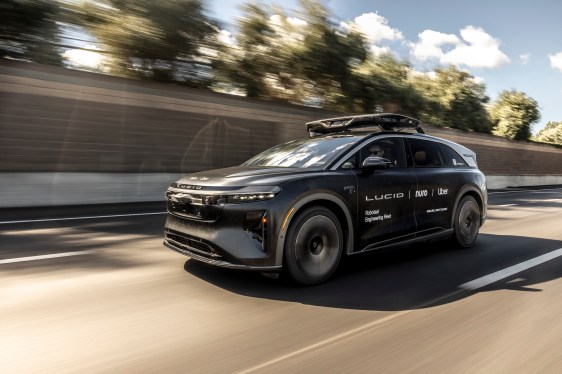Uber has selected San Francisco as the launch city for a new premium robotaxi service. This service will use Lucid Motors’ all-electric Gravity SUVs equipped with self-driving technology developed by Nuro, with a public launch planned for 2026. This move positions Uber in direct competition with Waymo.
The announcement was made on the final day of the TechCrunch Disrupt 2025 event in San Francisco. Nuro president and co-CEO Dave Ferguson and Uber chief product officer Sachin Kansal were scheduled for an interview on the Disrupt stage. Kansal stated that the Bay Area, as a birthplace of transformative technology, is a fitting location for this next-generation robotaxi program. He emphasized that combining expertise in electric vehicles, autonomy, and ride-hailing lays the groundwork for safe and scalable autonomous rides.
Earlier this year, Uber revealed a plan to invest three hundred million dollars in Lucid and to purchase at least twenty thousand of its new Gravity SUVs over the next six years. These electric vehicles will be equipped with Nuro’s autonomous vehicle system and will be owned and operated by Uber or its third-party fleet partners. At that time, the three companies had not chosen their initial launch market.
The decision to launch in San Francisco could introduce tension to Uber’s relationship with Waymo. The two companies had a legal dispute in 2018 over trade secrets, but they later reconciled and launched a robotaxi service together in Austin and Atlanta earlier this year. Now, Uber is entering a domain currently dominated by Waymo. Waymo, which is owned by Alphabet, operates commercial robotaxi services in the San Francisco Bay Area, Atlanta, Austin, Los Angeles, and Phoenix. Waymo has stated it plans to launch in six additional cities in 2026.
Uber, Nuro, and Lucid are already developing a test vehicle fleet. Lucid has recently delivered vehicles to Nuro, which is now integrating its self-driving system for testing and validation. The companies expect this test fleet to grow to approximately one hundred vehicles.
Testing on public roads will be the most visible part of the partnership, though Nuro also plans to use simulation and closed courses for additional testing. Over the past two years, Uber has established numerous partnerships with autonomous vehicle technology companies. These deals cover various applications of self-driving systems, including ride-hailing, delivery, and trucking. Its agreements with Waymo, Nuro, and Lucid are among its most significant. This year alone, Uber announced new partnerships with May Mobility, Volkswagen, and the Chinese self-driving firms Momenta, WeRide, and Baidu.

